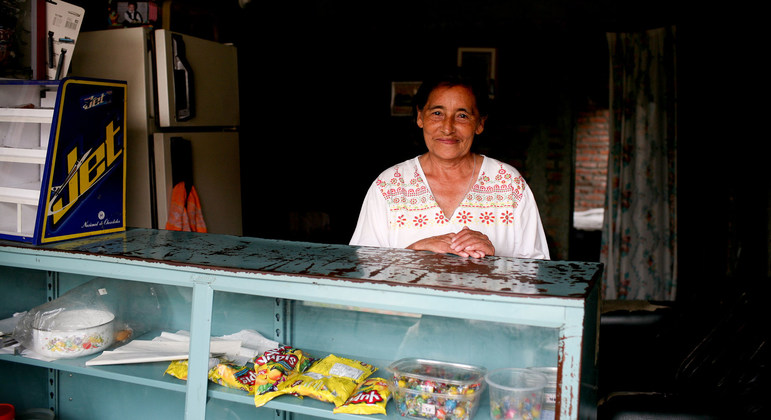The UN brief reveals that several countries in the region, are now among those with the highest per capita infection rates worldwide and shines a light on how the crisis is impacting vulnerable groups, including indigenous communities and women.
“The most vulnerable populations and individuals are once again being hit the hardest,” Secretary-General António Guterres said in a video message on the pandemic’s effect throughout a zone grappling with fragmented health services – even before the coronavirus.
‘Unprecedented’ impacts
The UN chief emphasized the impact of the coronavirus on women across the region, who make up the majority of the workforce and now bear the brunt of additional caregiving. He highlighted the plight of older persons and individuals with disabilities, who are at greater risk; and indigenous peoples, those of African descent, migrants and refugees, who suffering disproportionately.
It is projected that there will be a 9.1 per cent contraction in gross domestic product (GDP), which will be the largest in a century.
While stressing the need to “do everything possible to limit the spread of the virus and tackle the health effects of the pandemic”, Mr. Guterres noted that “we must also address the unprecedented social and economic impacts.”
Steps towards a better recovery
The policy brief underlines an array of urgent and longer-term steps for better recovery, including the prioritization of distance learning and continued child-centered services to mitigate education interruptions.
Governments within the region are also being asked to do more to reduce poverty, food insecurity and malnutrition, such as by providing basic emergency income and anti-hunger grants.
Mr. Guterres also flagged the urgent need for greater international support.
“I have called for a rescue and recovery package equivalent to more than 10 per cent of the global economy”, reminded the UN chief, underscoring the need of the international community to provide liquidity, financial assistance and debt relief for Latin America and the Caribbean.
“Latin American and Caribbean countries – and in particular small island developing States – should not be excluded from global assistance”, he asserted. “The international multilateral response needs to be extended to middle-income countries”.
Structural change
Broader structural challenges must be addressed to build back better and transform the region’s development model.
Against the backdrop of pervasive inequality, accessible and comprehensive welfare systems must be developed, fair taxation systems created, decent jobs promoted, environmental sustainability strengthened, and social protection mechanisms reinforced, according to the UN chief.



